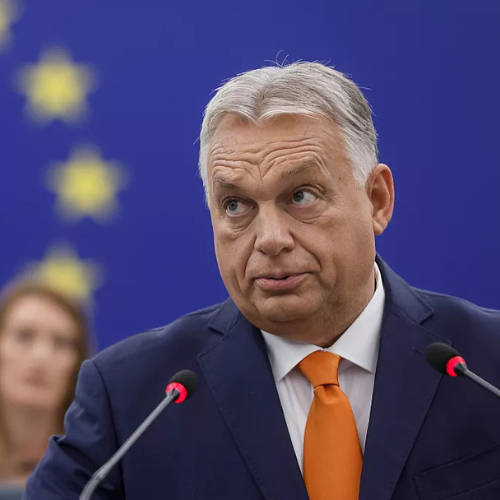Hungary’s Prime Minister Viktor Orbán has raised concerns about the European Union’s policy of sanctioning Russia. He argues that these sanctions could lead to an economic disaster for the EU, while having little effect on Russia’s economy. Orbán’s views stand in stark contrast to the majority of European leaders, who support sanctions as a way to pressure Russia over its invasion of Ukraine.
The EU’s Sanctions Against Russia
The European Union has imposed several rounds of sanctions on Russia since its invasion of Ukraine in 2022. These sanctions target a wide range of areas, including energy, banking, and even businesses like the world’s largest diamond mining company. The goal of these measures is to weaken Russia’s economy and reduce its ability to fund the war in Ukraine.
However, Orbán has repeatedly criticized these sanctions. He believes that they have hurt European countries more than they have hurt Russia. In his view, the sanctions have caused energy prices to skyrocket, leading to inflation and economic struggles in Europe. Orbán claims that the EU’s policies have backfired and that the economic burden is falling on European citizens rather than on Russia.
Orbán’s Warning: EU Risks Economic Collapse
Orbán was very outspoken in a recent radio interview, where he made his most serious warning yet. He said that the EU must abandon its sanctions on Russia or risk destroying its own economy. According to him, the sanctions are not achieving their intended goals and are instead hurting European nations.
The Hungarian leader stated that the EU’s sanctions on Russia should be reviewed, as the current policy is not bringing down energy prices. He emphasized that the sanctions would lead to “painful” consequences for EU countries, especially for those who have supported them. Orbán suggested that the leaders who pushed for these sanctions would eventually face the consequences of their decisions.
While Orbán believes that these sanctions would harm Europe, he insists that Hungary would not be significantly affected. He explained that Hungary sees itself as being in a “victorious” position because it has managed to continue trading with Russia in certain areas, particularly in energy. Orbán stressed that Hungary had worked out exceptions from the EU sanctions that allow it to continue importing Russian oil and gas.
Russia’s Shadow Oil Fleet Faces EU’s New Sanctions Plan
This approach has led to criticism from other EU leaders, who argue that Hungary’s close ties to Russia weaken the unity of the European Union. Orbán’s government has long been seen as having warm relations with the Kremlin, and his opposition to sanctions reflects this.
Hungary’s Role as EU President
Currently, Hungary holds the rotating presidency of the EU. As the president, Hungary has significant influence over the direction of the bloc’s policies. During its presidency, Hungary has focused on de-emphasizing measures against Russia and has called for a more cautious approach to sanctions. Orbán’s stance has created tensions between Hungary and other EU countries, especially as the European Parliament has been pushing for tougher penalties against Russia.
The European Parliament has recently adopted a resolution calling for the EU to step up its efforts to prevent Russia from evading sanctions through its “shadow fleet.” This fleet consists of ships that transport Russian oil in violation of existing sanctions. The European Parliament also wants to ban the import of Russian fossil fuels altogether. However, Orbán strongly opposes this idea, arguing that it would harm Hungary’s economy, which depends heavily on Russian energy imports.
Orbán’s views on the issue of Russian sanctions are not new. He has been consistent in his opposition to the EU’s hardline stance against Russia, often emphasizing that Hungary’s economy is highly dependent on energy supplies from Russia. Because Hungary is landlocked, it relies on Russian oil and gas to meet its energy needs, which is why Orbán argues that cutting ties with Russia would have a severe impact on Hungary.
At the same time, Orbán has pointed out that the economic situation in Hungary is already challenging. The country is currently in a technical recession, and the Hungarian leader has suggested that a shift in international politics, particularly in the U.S., could help stabilize Hungary’s economy. He has expressed hope that, under a future U.S. president, Hungary could expect more economic cooperation and support.
For now, the EU is preparing for new rounds of sanctions targeting Russia. However, the debate over the effectiveness and consequences of these sanctions continues, with Orbán leading the charge against them. His warning that the EU’s policies could lead to an economic collapse is gaining attention, especially as the bloc faces increasing pressure to act more decisively in response to Russia’s actions in Ukraine.


